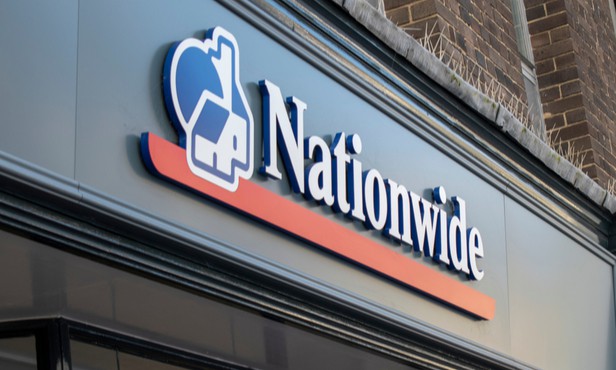A 20% deposit is equivalent to 110% of the average income, which is a record high and up from 102% one year ago.

Raising a deposit is still the biggest hurdle for first-time buyers despite affordability becoming more stretched, according to Nationwide.
Data collected by Nationwide found that high house prices relative to average earnings continue to make raising a deposit a significant barrier for first-time buyers.
Nationwide also found that a 20% deposit is equivalent to 110% of the average income, which is a record high and up from 102% one year ago.
House prices have risen quicker than earnings over last year, resulting in an increase to the cost of servicing a mortgage relative to take-home pay.
Northern regions and Scotland remain most affordable.
House price growth has exceeded earnings growth over the past year, and the ratio of house prices to average earnings (HPER) has increased to a record high.
In the third quarter, the UK first-time buyer house price to earnings ratio stood at 5.5, above the previous high of 5.4 in 2007, and well above the long-run average of 3.8.
While there continues to be a significant gap between the least affordable and most affordable regions across the UK, this has remained broadly stable over the last year.
London was found to have the highest house price to earnings ratio at 9.0, although this was still below its record high of 10.2 in 2016.
Scotland had the lowest house price to earnings ratio in the country at 3.4, closely followed by The North at 3.5.
Looking over the longer term, Northern England and Scotland have historically seen lower HPERs than Southern England, Wales and Northern Ireland.
Andrew Harvey, senior economist at Nationwide, said: “One of the consequences of high house prices relative to earnings is that it makes raising a deposit a significant challenge for prospective first time buyers.
"Indeed at present, a 20% deposit is now equivalent to 110% of the pre-tax income of a typical full-time employee, a record high and up from 102% a year ago.
“Nonetheless, there is substantial regional variation as illustrated in the chart (see attached), which shows the average time it would take someone earning the typical wage in each region to save a 20% deposit towards an average FTB property, assuming they set aside 15% of their take-home pay each month.
“A significant proportion of first-time buyers draw on help from friends and family or an inheritance to help raise a deposit, as illustrated in the chart (see attached).
“In 2019/20, around a third of first time buyers had some help raising a deposit, either in the form of a gift or loan from family or a friend or through inheritance – up from 27% 25 years ago.
“House prices have continued to rise more quickly than earnings in recent quarters, which means affordability is becoming more stretched. Due to the historically low level of interest rates, the comparative cost of servicing a typical mortgage is still well below the levels recorded in the run up to the financial crisis. However, even on this measure, affordability is becoming more challenging.
“There has been increased speculation that the Bank of England’s Monetary Policy Committee (MPC) will increase interest rates in the coming months.
“Clearly, much will depend on the committee’s assessment of the outlook for growth and inflation, but investors expect Bank Rate to be increased from its current record low of 0.1% around the turn of the year – most likely to 0.25% or 0.5% – and perhaps reaching 1% within 12 months.
“Providing the economy does not weaken significantly, the impact of a limited rise in interest rates for existing borrowers is likely to be modest, especially given only 20% of outstanding mortgages are on variable rates."
James Forrester, managing director of Barrows and Forrester, said: “Much has been made about the government’s success of negotiating the pandemic where the property market is concerned.
"While it’s fair to say the market has never looked stronger, this statement is one based largely on perspective.
"If you own a home and have enjoyed a double-digit increase in value over the last year, you’re no doubt over the moon.
"However, those struggling to piece together a sufficient deposit are unlikely to share this opinion.
"The cold reality is that if you aren’t looking to buy with the financial support of a second wage, support from the Bank of Mum and Dad, or you don’t earn considerably more than the average person in your respective area, the dream of homeownership is one you’re unlikely to realise until much later in life than you might like.”
Marc von Grundherr, director of Benham and Reeves, added: “We’ve seen a respectable level of wage growth in recent years but unfortunately this hasn’t been enough to match the might of the UK housing market.
"At the same time, record low interest rates over such a prolonged period of time have been great for those taking their first step on the property ladder with a mortgage, but they’ve been terrible for those attempting to save.
"Even in London, where house price growth has been fairly muted in comparison to much of the UK and wages are more robust, the barrier to homeownership is still incredibly high.
"Unfortunately, there’s not a great deal that can be done although the cyclical nature of the property market does suggest what goes up, will come down.
"So sitting tight and waiting for a correction is probably the best immediate bet open to struggling homebuyers.”



